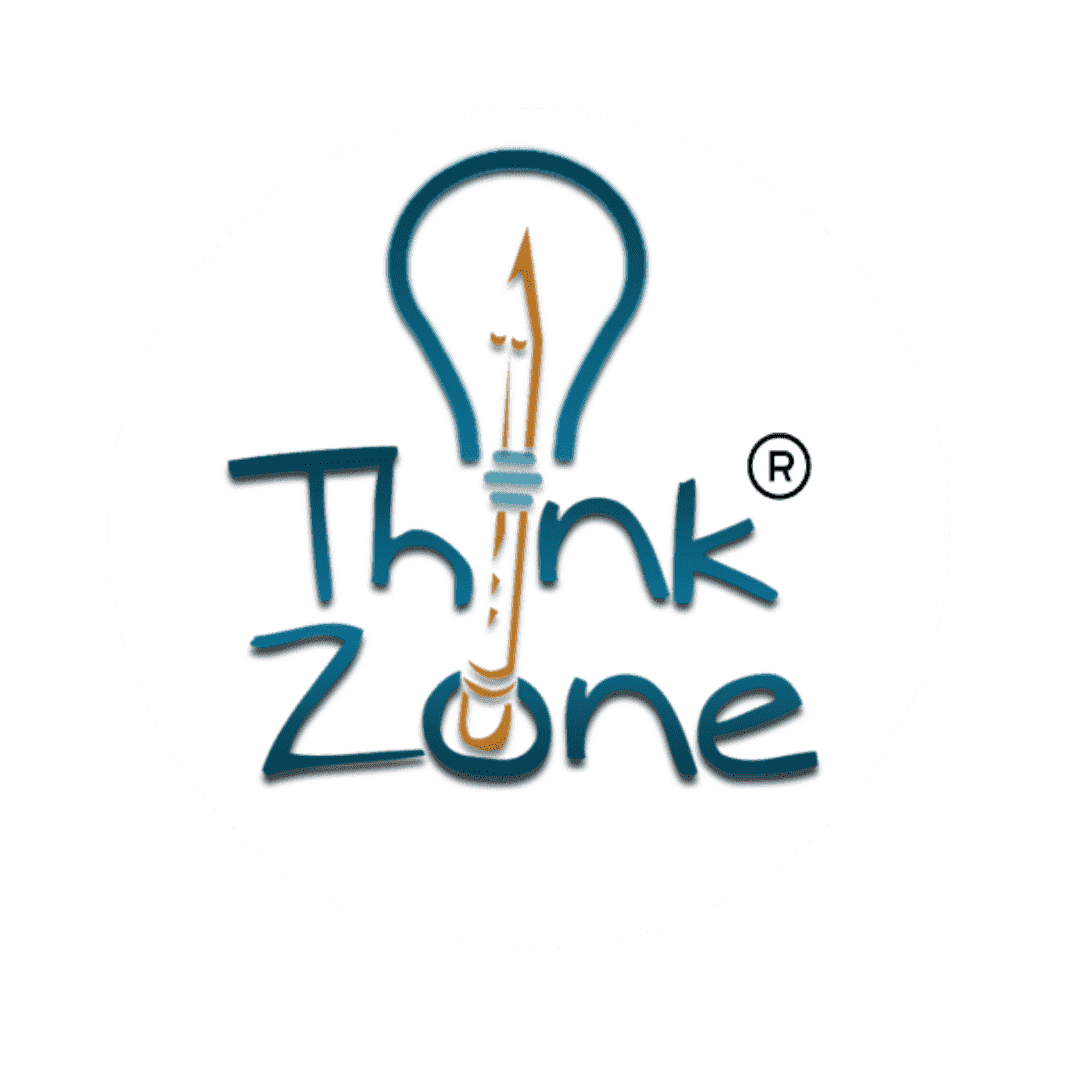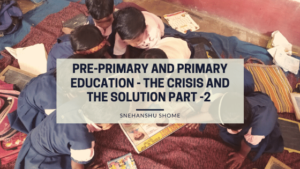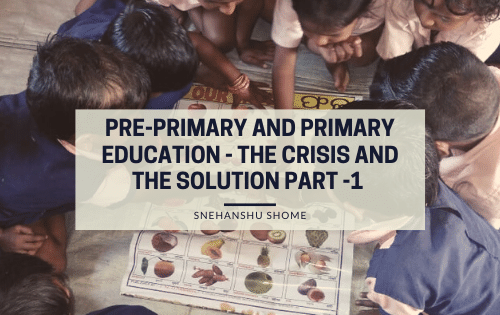A Fellowship for the Youth of Odisha
Though the percentage of urban population is less in Odisha, the pace of growth of population in cities and towns across Odisha is greater than that of several Indian states. The growing population in urban Odisha has huge implications on infrastructure and provision of other civic amenities in urban areas, especially access to quality education to children and youth of poor communities.
The cities, towns and semi-urban areas of Cuttack, Khordha, Bhadrak and Kendrapara districts have families that have migrated from villages across Odisha in the last 10-30 years. According to government estimates, 82% of these families send their children to public schools and childcare centers which are completely under-resourced with limited learning facilities, limited or no digital access along with high teacher-to-student ratios.
Children living in poor urban communities of Odisha, start out with low-quality learning opportunities which lead to them having limited educational foundations. Nearly half a million children under 6 years of age in urban Odisha fail to reach their potential in cognitive development. According to government statistics we have managed to enroll 97% of children in schools across Odisha. But leading non-profit Pratham has found out that over 40% of students drop out before the age of 12. Over 800 thousand children in urban Odisha every day suffer from a serious learning crisis that has been found out from government-administered large-scale surveys.
Most of the public schools & anganwadis which have enrolled under-resourced children in urban Odisha are completely under-resourced with limited learning facilities & digital access along with high teacher-to-student ratios. Educators present here have limited access to training & content which prevents them from instructing effectively which directly affects children’s learning. Not all families are able to afford private learning facilities and so children are unable to develop the appropriate foundational skills by age 10. The youth passing out of such a system has limited skill sets and lacks access to high-quality skill development opportunities which limits their growth.
Education is also critical for setting young people (18-24 years) up for employment. Unfortunately, most young people from urban Odisha come from humble educational backgrounds. They also lack the relevant skills and have limited access to innovative platforms, technologies, or entrepreneurial approaches to earn livelihoods. When young people lack the right tools and skills to critically understand the world and navigate through the challenges of life, they might engage in negative behaviors and actions, or simply be overlooked and neglected.
True learning opportunities for the youth need to be available at nontraditional times, and not exclusively linked to a physical location or building. Technological innovations can provide pathways and platforms for developing skills of youth under difficult conditions and providing them entrepreneurial opportunities in their own communities.
ThinkZone, an Odisha based social enterprise, uses accessible technology to identify, skill, certify & equip youth (18-24 years) from urban Odisha to become education micro-entrepreneurs & community change agents. Youth from low-resourced communities become skilled & effective facilitators and work towards developing the foundational skills of children by using an innovative localized solution, data-driven mobile technology & community interaction platform.
With a mobile phone platform, youth with zero teaching & technology skills can implement high-quality education programs in their communities. The mobile application helps in identifying a student’s current ability through diagnostic testing & then develops personalized curricula based on each student’s specific needs which are then implemented by trained youth.
The trained youth earn their livelihoods by implementing the education programs in low-resourced communities. Apart from learning about innovative teaching techniques, the app also provides them with a personalized skill-enhancement program based on their current ability. Our approach leads to the development of multiple skills among youth including entrepreneurial skills, digital skills, financial management & sales skills, modern teaching techniques, communication skills, etc., which in turn leads to the opening up of multiple job opportunities in private & public space.
The aspects of the program – ThinkZone India Micro-Entrepreneurs in Education (TIME) Fellowship can be described through the following infographic
Through this, ThinkZone is creating a scalable model of technology & community interventions that can be adapted to the local context. Our initial years of work have led to the development of technology platforms, education, and training content for first-generation learners along with the successful implementation of the low-cost operating model. We have demonstrated a significant social impact in the semi-urban and rural communities of Odisha & now want to scale the solution across urban Odisha. We want to make the existing platform more data-driven and expand the already developed public-private partnership to urban Odisha.
The immediate impact will lead to youth from under-resourced communities becoming micro-entrepreneurs in education which will help them to earn income while they are pursuing their formal education if any. The income would become a significant boost to their current family incomes. Another immediate impact for youth who are a part of the project would be the enhancement of their technology skills, communication, and personal skills apart from an improved understanding of the subject matter.
In the long-term, it would lead to youth becoming societal change-agents who inculcate a spirit of entrepreneurship in their communities. The development of multiple skills among youth as a part of the project will open up multiple job and entrepreneurial opportunities. The entire methodology and the structure/processes of the ThinkZone program will not only help youth become better educators in their communities but will also provide them avenues to gain knowledge and career options.


